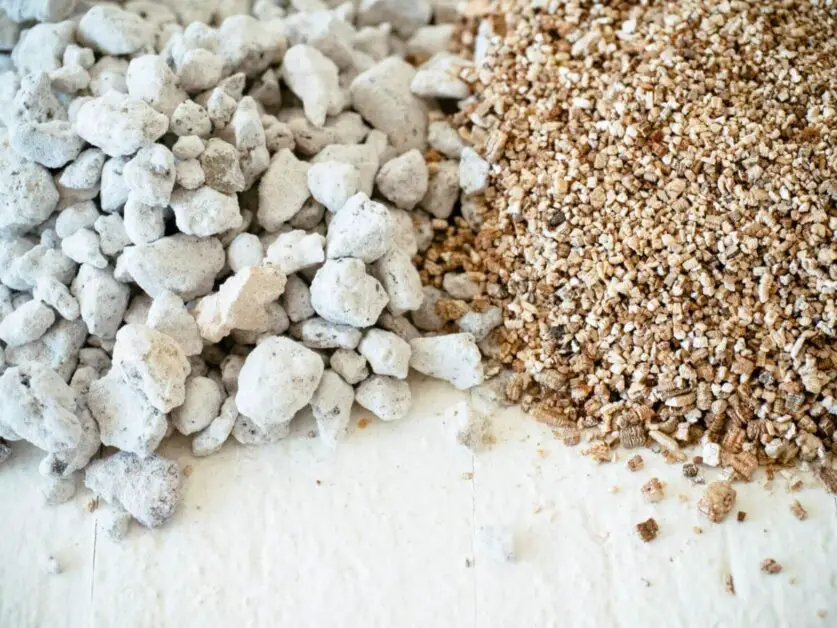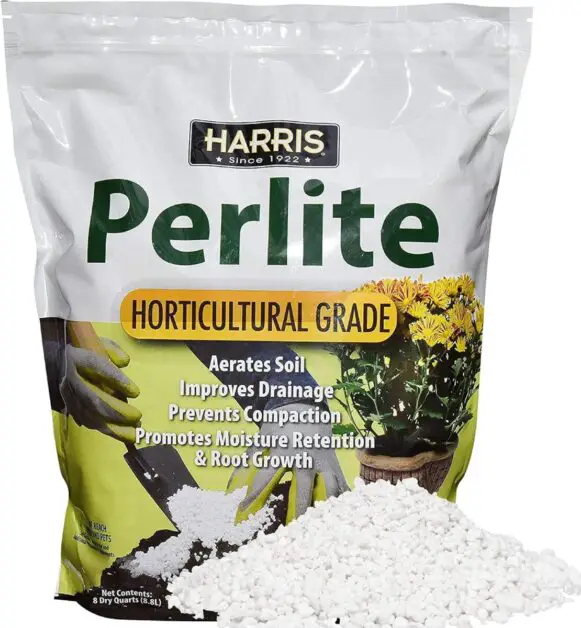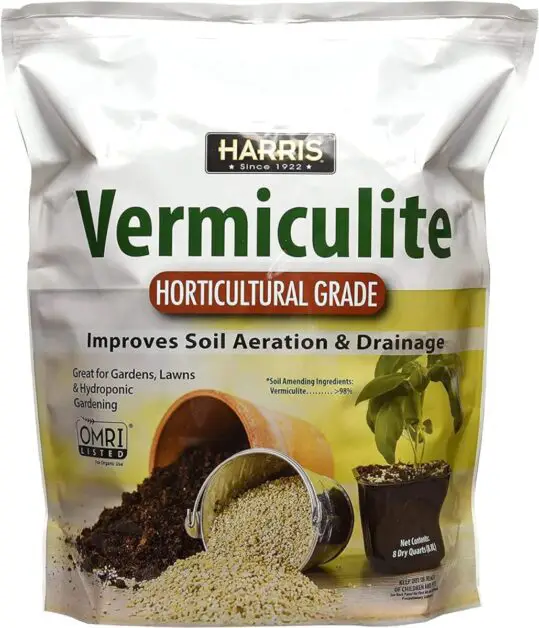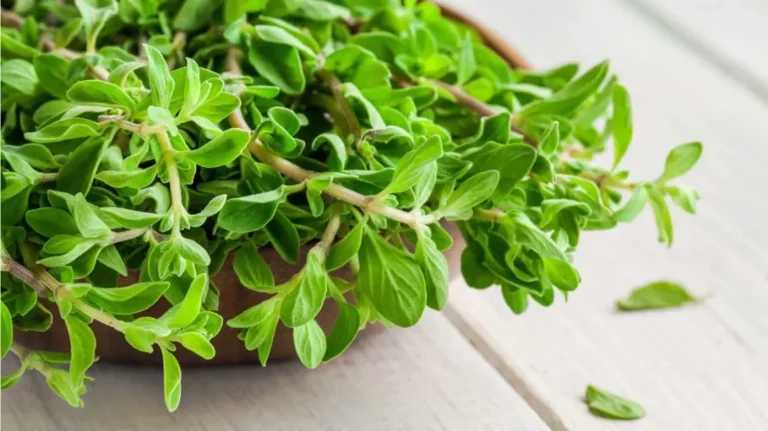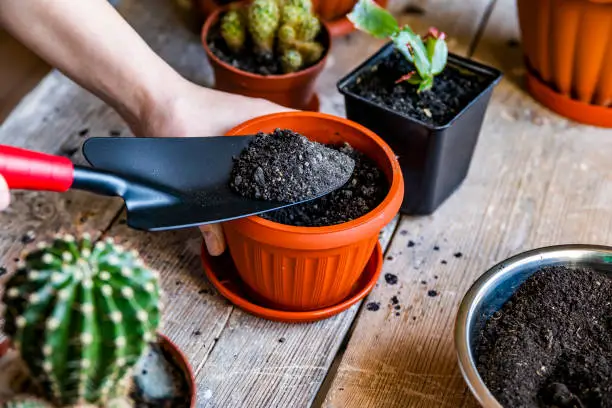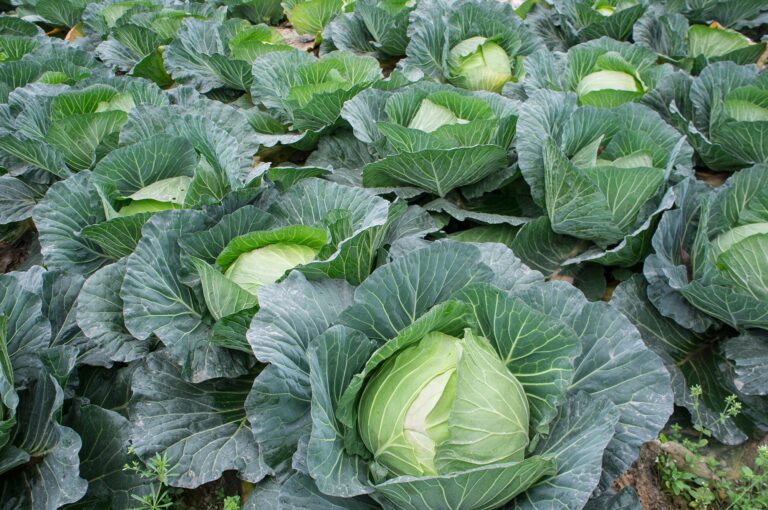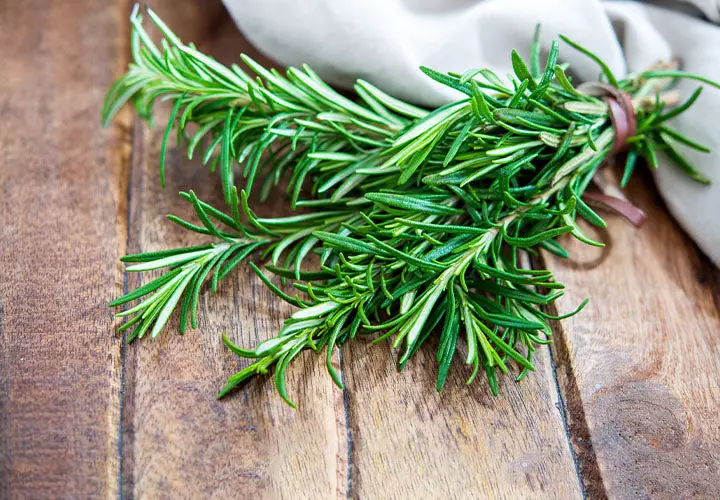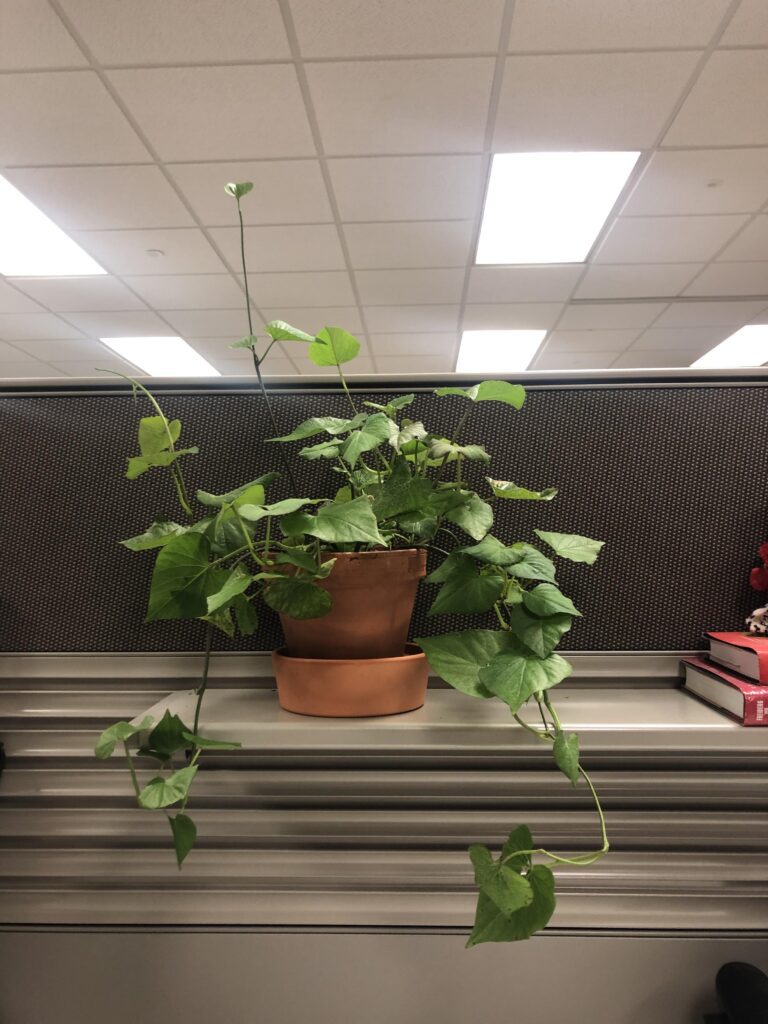Perlite vs Vermiculite: What They Are, How They Work, and How to Use Them for Your Plants
Are you an aspiring green thumb looking to elevate your plant game? Enter the world of horticultural wonders: Perlite vs Vermiculite. These lightweight minerals may sound like obscure elements from a chemistry lab, but they’re actually powerhouse ingredients for nurturing your beloved plants. In this guide, we’ll delve into what sets perlite and vermiculite apart, how they function their magic in your garden, and savvy ways to incorporate them into your plant care routine. Whether you’re cultivating a lush indoor oasis or nurturing a thriving outdoor garden, understanding these soil amendments is key to unlocking your plants’ full potential. Get ready to dig deep into the dirt and unearth the secrets of perlite and vermiculite!
Table of Contents
Understanding the Purpose of Soil Amendments
Soil amendments play a crucial role in gardening and plant growth. These additives are used to improve the physical properties of soil, enhancing its fertility, structure, and nutrient-holding capacity. By incorporating soil amendments into your gardening routine, you can create an optimal growing environment for your plants and increase their overall health and productivity.
:max_bytes(150000):strip_icc()/GettyImages-469085306-c7d395383751430cb132bfd0477955b7.jpg)
Exploring Lightweight Soil Amendments
Lightweight soil amendments play a crucial role in enhancing plant growth and improving soil quality. These amendments, such as perlite and vermiculite, offer unique characteristics that make them valuable options for gardeners and horticulturists.

Perlite:
- Enhanced Drainage:
- Porous structure prevents waterlogged soil and root rot.
- Aeration:
- Creates air pockets in the soil, improving oxygen flow to plant roots.
- Easy Handling:
- Lightweight nature makes it easy to mix into potting soil.
- Soil Quality Improvement:
- Enhances overall soil quality for optimal plant growth.
Vermiculite:
- Water Retention:
- Retains water and releases it slowly to plants.
- Helps maintain consistent soil moisture.
- Steady Supply of Moisture:
- Ensures plants receive adequate hydration, especially during dry periods.
- Soil Aeration:
- Lightweight and spongy texture contribute to improved soil aeration.
- Vital for robust root development and overall plant health.
The exploration of lightweight soil amendments like perlite and vermiculite unveils their significant benefits for gardening and plant growth. By incorporating these amendments into your potting mix, you can create an optimal environment for your plants, ensuring proper drainage, aeration, and water retention.
“Premium Horticultural Perlite has been a game-changer in my gardening experience. Its ability to enhance soil aeration has resulted in healthier plants with stronger root systems. I’ve noticed improved drainage and oxygenation in my potting mixes, leading to reduced risk of root rot and improved overall plant vigor.
However, handling perlite can be a bit messy due to its lightweight and dusty nature, requiring precautions such as wearing a mask and gloves. Despite this minor inconvenience, the benefits of using perlite far outweigh any drawbacks. Overall, Premium Horticultural Perlite is a must-have for any gardener looking to optimize soil conditions and promote thriving plant growth.”
“Horticultural Vermiculite has been a valuable addition to my gardening toolkit. Its ability to enhance soil aeration and drainage has significantly improved the health and vitality of my plants. I’ve noticed a marked difference in root development and overall plant growth since incorporating vermiculite into my soil mixes.
However, I must mention that handling vermiculite can be a bit messy due to its lightweight nature, and precautions such as wearing a mask and gloves are necessary to avoid inhaling dust particles. Despite this minor inconvenience, the benefits of using horticultural vermiculite far outweigh any drawbacks. Overall, I highly recommend horticultural vermiculite to any gardener looking to optimize soil conditions and promote thriving plant growth.”
✅ Lightweight: Perlite is lightweight, making it easy to incorporate into soil mixes without adding unnecessary bulk or weight.
✅ Water Retention: While perlite primarily improves drainage, it also helps retain some moisture in the soil, ensuring a balanced environment for plant roots.
✅ Neutral pH: Perlite has a neutral pH, making it suitable for a wide range of plants without affecting soil acidity or alkalinity.
✅ Versatile Use: Perlite can be used in various gardening applications, including potting mixes, hydroponic systems, and soil conditioning, providing versatility for gardeners.
❌ Limited Nutrient Content: Perlite itself is inert and does not provide any nutrients to plants, so additional fertilization may be necessary to meet plant nutritional needs.
❌ Environmental Concerns: The production and transportation of perlite may have environmental impacts, including energy consumption and greenhouse gas emissions.
❌ Cost: Depending on the source and quality, perlite can be relatively expensive compared to other soil amendments, potentially increasing the overall cost of gardening projects.
❌ Potential Floatation: Perlite particles may float to the surface of soil mixes over time, especially in containers with frequent watering, requiring occasional re-incorporation into the soil.
✅ Enhanced Drainage: Vermiculite helps improve soil drainage by preventing compaction, reducing the risk of waterlogged roots and root rot.
✅ Lightweight: Vermiculite is lightweight, making it easy to incorporate into soil mixes without adding excessive bulk or weight.
✅ Nutrient Retention: Vermiculite has the ability to retain moisture and nutrients in the soil, providing a balanced environment for plant growth.
✅ pH Neutral: Vermiculite has a neutral pH, making it suitable for a wide range of plants without affecting soil acidity or alkalinity.
❌ Dust: Handling vermiculite may generate dust particles, which can be a respiratory irritant, necessitating precautions such as wearing a mask and gloves during use.
❌ Limited Nutrient Content: Vermiculite itself does not provide any nutrients to plants, so additional fertilization may be necessary to meet plant nutritional needs.
❌ Environmental Concerns: The production and transportation of vermiculite may have environmental impacts, including energy consumption and greenhouse gas emissions.
❌ Potential for Compaction: While vermiculite improves soil structure initially, it may break down over time and contribute to compaction, requiring periodic soil amendments for soil health maintenance.
The Role of Perlite in Plant Growth
Perlite, a unique volcanic glass mineral, plays a crucial role in plant growth and is widely recognized as an effective soil amendment. Its lightweight and porous nature make it an ideal addition to potting mixes, providing numerous benefits for plants. One of the key advantages of using perlite is its ability to improve soil drainage.
- Improved Drainage: Perlite enhances soil drainage by creating channels that allow excess water to drain freely, preventing waterlogging and associated plant diseases like root rot.
- Optimal Oxygen Levels: By promoting drainage, perlite ensures that plant roots have access to sufficient oxygen, essential for root respiration and nutrient uptake.
- Enhanced Aeration: Perlite’s porous structure creates air pockets within the soil, facilitating the exchange of gases between roots and the environment, promoting healthier root development.
- Microbial Activity: Increased aeration provided by perlite encourages the growth of beneficial soil microorganisms, further improving nutrient availability to plants.
- Nutrient Absorption: With improved drainage and aeration, plants grown in perlite-amended soil can better absorb nutrients, leading to enhanced overall health and vitality.
Examining the Characteristics of Perlite
Perlite is a widely used soil amendment that offers a range of characteristics beneficial for plant growth.

Lightweight nature allows water to flow through the soil.
Prevents waterlogged conditions, especially in areas with heavy rainfall.
Ensures adequate oxygenation for plant roots.
Porous structure promotes air circulation within the soil.
Vital for healthy root development and prevents root rot.
Beneficial for oxygen-demanding plants like succulents and herbs.
Suitable for various plant species.
Neutral pH maintains stable soil acidity/alkalinity.
Does not alter the growing environment.
Inert material that doesn’t decompose over time.
Provides lasting benefits without frequent replacement.
Perlite is indeed a valuable addition to garden soil! 🌱🌿
How Perlite Improves Soil Drainage
Perlite, a lightweight mineral substance, is widely recognized for its role in improving soil drainage. The unique properties of perlite make it a valuable addition to any potting mix or garden soil. One of the key benefits of perlite is its ability to enhance water drainage, preventing waterlogged conditions that can lead to root rot and other plant diseases.
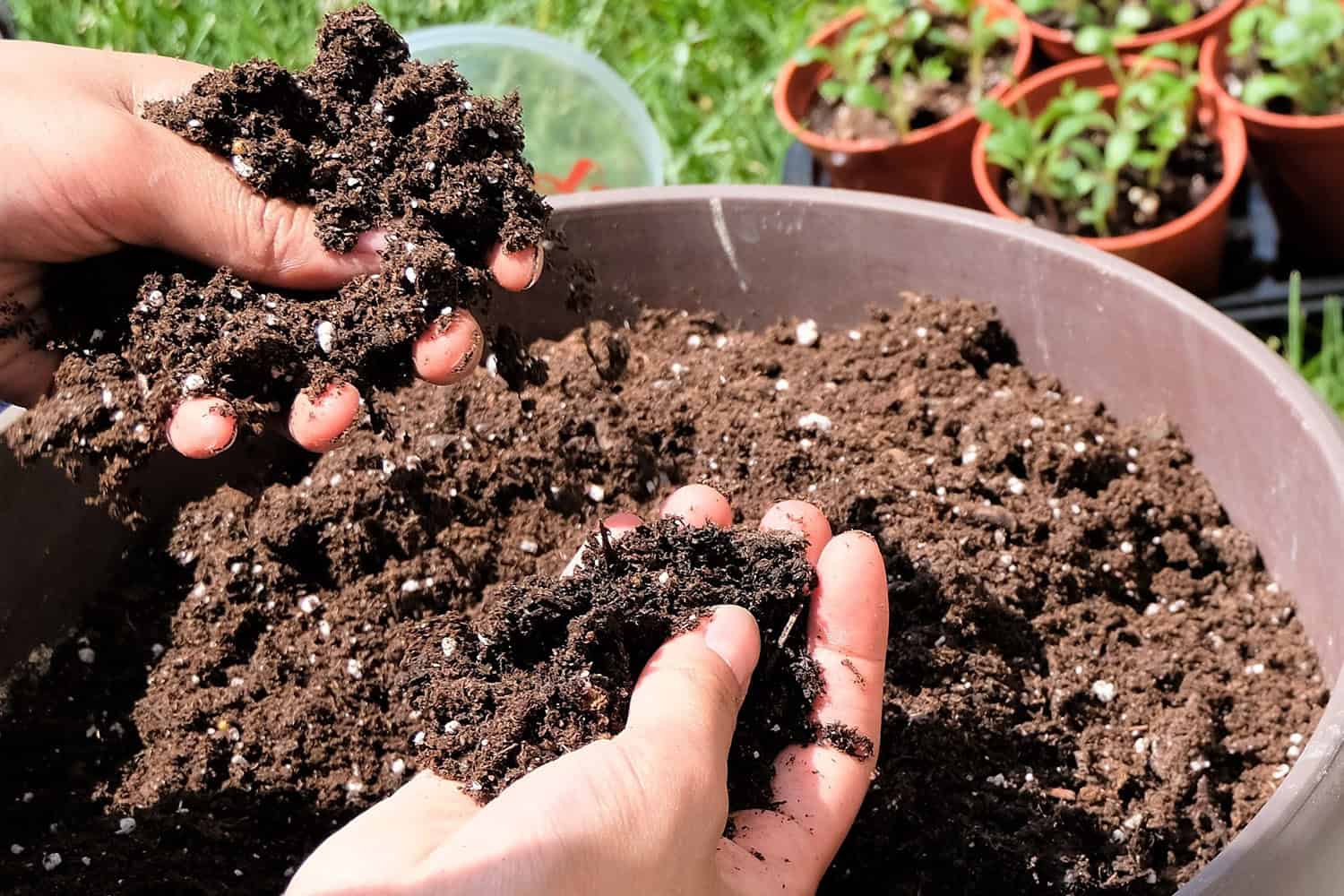
- Porous Particle Structure: Perlite’s tiny, porous particles create air pockets in the soil, facilitating excess water drainage and preventing water pooling around plant roots.
- Enhanced Soil Aeration: By improving drainage, perlite maintains a well-aerated root zone, ensuring plants receive the oxygen necessary for healthy growth.
- Prevention of Compaction: Perlite’s lightweight nature helps prevent soil compaction, further promoting good drainage and reducing the risk of waterlogging.
- Versatile Use: Whether you’re cultivating flowers, vegetables, or herbs, incorporating perlite into your soil can greatly enhance drainage and create an optimal environment for plant roots to flourish.
Remember, proper soil drainage is essential for plant health and vitality. By adding perlite to your potting mix or garden soil, you can ensure that excess water is effectively drained away, reducing the risk of root-related problems. Stay tuned to learn more about the many benefits of perlite and how it compares to other soil amendments in promoting optimal plant growth.
Enhancing Aeration with Perlite
Perlite is a lightweight soil amendment that plays a crucial role in enhancing aeration in plant growth. With its porous structure and ability to retain moisture while allowing excess water to drain, perlite promotes a well-ventilated root environment, leading to healthier and more robust plants.
- Enhanced Aeration:
- Perlite’s porous structure increases oxygen availability to plant roots.
- Prevents root suffocation and harmful anaerobic conditions.
- Vital for effective respiration and nutrient uptake.
- Improved Soil Structure:
- Lightweight perlite particles prevent soil compaction.
- Creates pathways for water, air, and nutrients to move freely.
- Facilitates root development and overall plant growth.
- Nutrient Recycling:
- Enhanced aeration aids in organic matter decomposition.
- Promotes nutrient recycling within the soil ecosystem.
Incorporating perlite into your gardening practices can indeed lead to healthier, thriving plants. Happy gardening! 🌱🌿
Vermiculite: A Valuable Soil Amendment
Vermiculite is a highly valuable soil amendment that is widely recognized for its beneficial properties in plant growth. Derived from a natural mineral, vermiculite undergoes expansion through heating, resulting in a lightweight and porous material that possesses remarkable moisture retention capabilities. This unique attribute makes vermiculite an excellent choice for enhancing water retention in soil, ensuring that plants have access to a steady supply of moisture even in dry conditions.
:max_bytes(150000):strip_icc()/how-to-use-vermiculite-5089699-hero-37d85e91f3554cfbba5ef65cf7a167e3.jpg)
- Moisture Retention and Aeration: Vermiculite excels in both moisture retention and soil aeration, thanks to its porous structure, which allows air to circulate around plant roots, promoting vital oxygen intake.
- Soil pH Buffering: Vermiculite also contributes to buffering soil pH levels, creating a favorable environment for nutrient absorption by plants, making it versatile for various plant types and growing conditions.
- Multiple Benefits for Plants: Incorporating vermiculite into your gardening routine offers numerous benefits, including promoting healthy root development, stronger plants, and improved soil structure.
- Versatile Usage: Whether you’re cultivating vegetables, flowers, or herbs, vermiculite’s properties make it an excellent addition to your garden, aiding in moisture retention, aeration, and soil structure improvement.
- Safe and Eco-Friendly: Vermiculite is a safe and environmentally friendly option for gardeners, free from harmful substances or toxins, and its non-degradable nature ensures long-lasting benefits without the need for frequent reapplication.
In conclusion, vermiculite is indeed a valuable soil amendment that offers numerous advantages to gardeners and plant enthusiasts. From its ability to retain moisture and improve soil aeration to its versatility and environmental safety, vermiculite stands as a reliable and essential component in creating ideal growing conditions for plants.
Unveiling the Properties of Vermiculite
Vermiculite is a mineral often used as a soil amendment in gardening and horticulture. Its unique properties make it a valuable addition to potting mixes and soil blends.

Vermiculite has high water-holding capacity.
Keeps plants hydrated, especially in dry or arid conditions.
Ideal for succulents, cacti, and moisture-sensitive plants.
Particle structure allows easy movement of air.
Creates a favorable environment for root development.
Ensures oxygen delivery and removes harmful gases.
Vermiculite maintains a neutral pH in the soil.
Suitable for various plant species without altering soil acidity/alkalinity.
Whether you are growing vegetables, flowers, or indoor plants, vermiculite can help to create the optimal growing conditions by enhancing water retention, improving aeration, and maintaining a neutral pH level.
In the next section, we will delve further into the benefits of water retention provided by vermiculite and explore how this soil amendment compares to perlite in terms of plant growth.
The Benefits of Water Retention Provided by Vermiculite
Vermiculite is a valuable soil amendment that offers numerous benefits for gardeners seeking to enhance water retention in their plant beds.
- Water Retention: Vermiculite’s high water absorption capacity allows it to retain moisture in the soil, ensuring plants have access to water for extended periods, vital in dry climates or for gardeners with inconsistent watering schedules.
- Steady Moisture Supply: Incorporating vermiculite into the soil provides plants with a steady supply of moisture, reducing the risk of dehydration and promoting healthy growth.
- Soil Temperature Moderation: Vermiculite’s porous structure acts as an insulating barrier, moderating soil temperature fluctuations in the root zone, particularly beneficial in regions with extreme climates.
- Stable Environment for Roots: Adding vermiculite to the soil creates a stable environment for root development, allowing plants to thrive even in challenging climatic conditions.
- Protection from Frost: Vermiculite’s insulating properties help protect plant roots from potential frost damage during colder months, ensuring year-round plant health and vitality.
Comparing Perlite vs Vermiculite in Plant Growth
Perlite and vermiculite are two popular soil amendments that can greatly benefit plant growth. Although they share some similarities, they also possess distinct characteristics that make them suitable for different gardening applications.
| Property | Perlite | Vermiculite |
|---|---|---|
| Drainage | Excellent drainage properties prevent waterlogged soil and root rot. | Holds moisture near plant roots, ensuring steady hydration. Ideal for dry conditions. |
| Aeration | Enhances soil aeration, promoting oxygen availability to roots. | Allows air circulation, vital for root development and gas exchange. |
| pH | Neutral pH; won’t significantly alter soil acidity or alkalinity. | Neutral pH; suitable for various plant species. |
| Longevity | Inert material; doesn’t decompose over time. | Long-lasting benefits without frequent replacement. |
| Versatility | Suitable for various gardening applications. | Regulates moisture and nutrients; ideal for consistent moisture-loving plants. |
So, whether you’re cultivating a lush indoor garden or nurturing a thriving outdoor landscape, the choice between perlite and vermiculite will ultimately depend on the specific needs of your greenery.
Choosing the Right Soil Amendment for Your Plants
When it comes to choosing the right soil amendment for your plants, it’s important to consider their specific needs and preferences. Different amendments offer different benefits, and understanding these benefits will help you make an informed decision. Two popular soil amendments are perlite and vermiculite, each with its own unique properties and advantages.
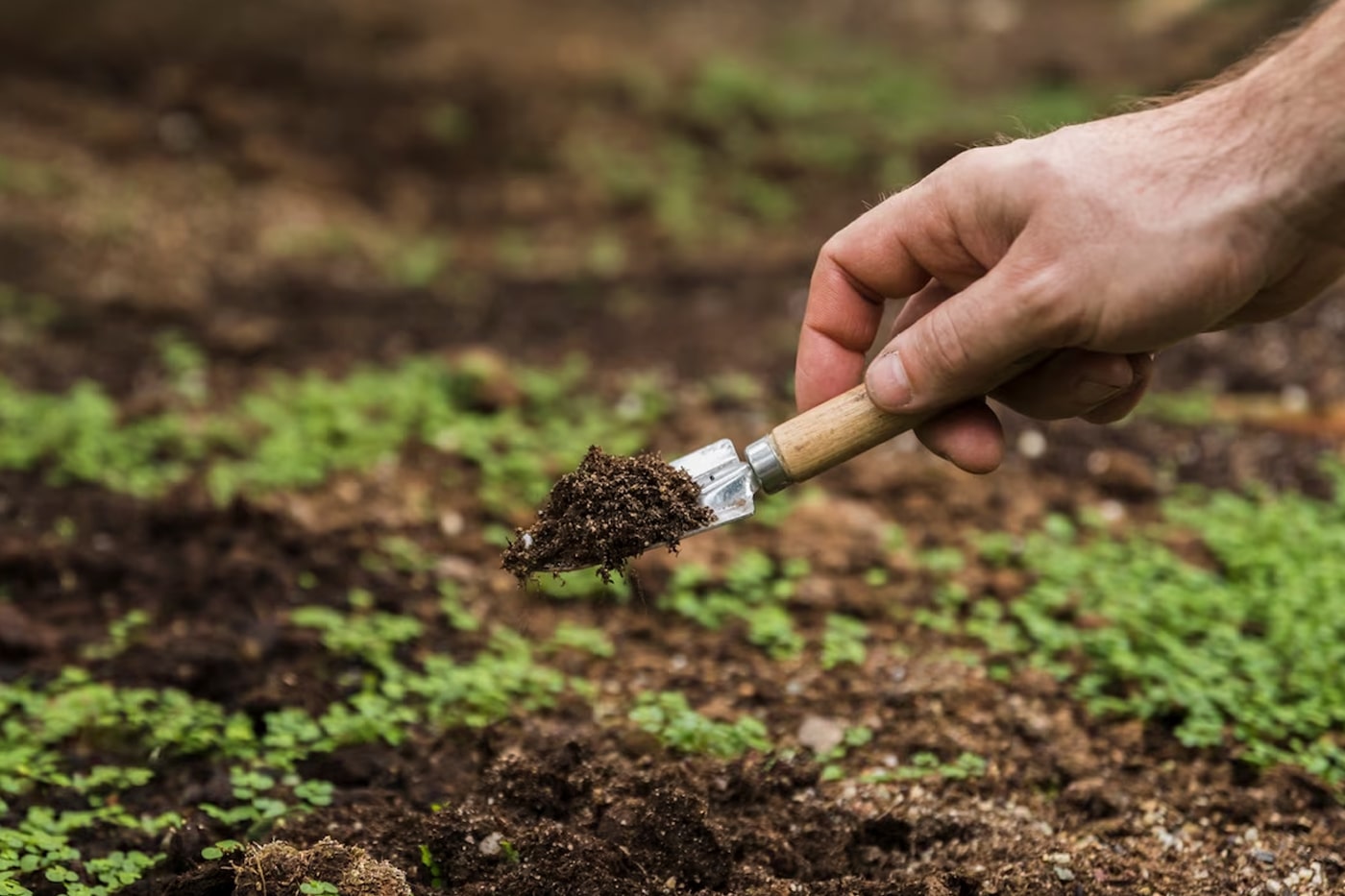
- Perlite Benefits:
- Lightweight and Porous: Perlite enhances soil drainage and aeration, promoting healthy root growth.
- Prevents Compaction: Perlite helps prevent soil compaction, ensuring optimal root development.
- Neutral pH: Perlite’s neutral pH makes it suitable for a wide range of plant species, particularly those requiring well-drained soil.
- Ideal for Succulents and Cacti: Perlite is an excellent choice for plants that thrive in well-drained conditions.
- Vermiculite Advantages:
- Water and Nutrient Retention: Vermiculite’s ability to retain water and nutrients makes it ideal for plants requiring consistent moisture.
- Slow Release: Vermiculite releases water slowly, ensuring plants have access to moisture over an extended period.
- Beneficial in Arid Climates: Vermiculite is particularly beneficial in arid climates or for plants prone to drying out quickly.
- Improves Soil Aeration: Vermiculite enhances soil aeration, promoting root health and growth.
- Provides Insulation: Vermiculite offers insulation, protecting roots from extreme temperature fluctuations.
- Choosing the Right Amendment:
- Consider Plant Needs: Select the appropriate soil amendment based on your plants’ specific water requirements, drainage needs, and species.
- Evaluate Growing Conditions: Assess factors such as climate and soil type to determine the best soil amendment for your garden.
- Optimize Plant Environment: By choosing the right soil amendment, you can create an optimal environment for your plants to thrive.
How to Incorporate Perlite and Vermiculite into Your Potting Mix
To achieve optimal results in your gardening endeavors, incorporating perlite and vermiculite into your potting mix is a crucial step. Both perlite and vermiculite possess unique properties that improve soil structure and promote healthy plant growth. Here, we will explore the simple yet effective methods of incorporating these essential soil amendments into your potting mix.
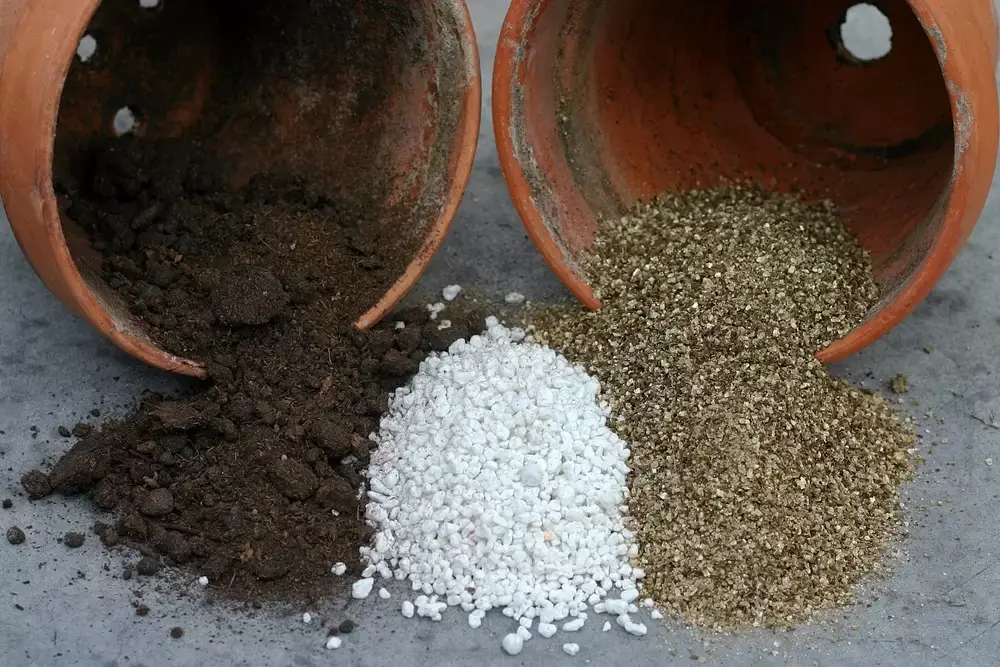
- Perlite Incorporation: For optimal results, mix perlite into your potting soil at a recommended ratio of 1 part perlite to 4 parts potting soil. Start by moistening the potting soil, then gradually add perlite, ensuring even distribution for improved soil aeration and drainage.
- Vermiculite Integration: Incorporating vermiculite into your potting mix at a ratio of 1 part vermiculite to 3 parts potting soil can significantly benefit your plants. Begin by moistening the potting soil, then gently blend in the vermiculite until evenly dispersed. This enhances water retention, ensuring your plants receive sufficient moisture, especially during dry spells.
Potting Mix Composition Table
| Component | Purpose | Proportion |
|---|---|---|
| Potting Mix/Soil | – Provides a base for the growing medium. | 50% |
| Perlite | – Improves aeration and drainage. | 25% |
| Vermiculite | – Enhances water retention and soil structure. | 25% |
Note: Adjust the proportions based on the specific needs of your plants and growing conditions. Always consider the moisture requirements and aeration preferences of the plants you are cultivating.
By following these simple steps, you can successfully incorporate perlite and vermiculite into your potting mix, improving soil quality and providing the optimal growing environment for your plants. Experiment with different ratios and observe the impact on your plants to find the perfect blend that suits your gardening needs.
Best Practices for Using Perlite and Vermiculite in Your Gardening Routine
When it comes to gardening, incorporating soil amendments like perlite and vermiculite into your routine can greatly enhance the health and productivity of your plants. However, using these amendments correctly is essential to ensure optimal results. Here are some best practices to follow when using perlite and vermiculite in your gardening routine.
- Understanding Ratio: Start with a ratio of 20-30% perlite or vermiculite to soil to improve soil structure, drainage, and aeration. Adjust based on plant needs and growing conditions, consulting experts or plant-specific recommendations for guidance.
- Incorporation Technique: Thoroughly mix perlite or vermiculite with soil for even distribution throughout the potting mix. This ensures effective improvement of soil properties, including drainage, aeration, and prevention of compaction.
- Benefits of Proper Mixing: Proper mixing promotes moisture retention while allowing excess water to drain away, creating a favorable environment for root growth and preventing root rot.
- Optimizing Plant Health: By adhering to best practices for using perlite and vermiculite, you can enhance the health and growth of your plants. Adjust ratios as needed and ensure thorough mixing for optimal results.
- Thriving Garden: With these practices in place, your garden will flourish, and your plants will thrive, showcasing robust growth and vibrant health.
Watch video for more infromation:
FAQ
What is the purpose of using perlite and vermiculite in gardening?
Perlite and vermiculite are soil amendments that improve soil drainage, enhance aeration, and promote water retention in plant growth.
What are the characteristics of perlite?
Perlite is a lightweight and porous volcanic glass that is commonly used in gardening. It has excellent water drainage properties and helps prevent soil compaction.
How does perlite improve soil drainage?
Perlite has a porous structure that allows excess water to drain quickly, preventing waterlogging and root rot in plants.
What is the role of vermiculite in gardening?
Vermiculite is a soil amendment that helps retain moisture in the soil, promoting healthy plant growth even in dry conditions.
How does vermiculite benefit water retention in gardening?
Vermiculite is a mineral that expands when heated, forming a lightweight and spongy structure. It has excellent water retention capabilities and aids in nutrient retention as well.
What are the properties of vermiculite?
Vermiculite is a mineral that expands when heated, forming a lightweight and spongy structure. It has excellent water retention capabilities and aids in nutrient retention as well.
What are the differences between perlite and vermiculite in plant growth?
Perlite primarily improves soil drainage and aeration, while vermiculite focuses on water retention. The choice depends on specific plant needs and gardening conditions.
How can I choose the right soil amendment for my plants?
Consider the watering requirements and natural habitat of your plants. If they prefer well-drained soil, choose perlite. If they require more moisture, vermiculite may be a better choice.
How can I incorporate perlite and vermiculite into my potting mix?
Mix perlite or vermiculite thoroughly with your potting soil in a ratio of 1:1 or as recommended for specific plant varieties. Ensure an even distribution to improve the overall soil structure.
What are some best practices for using perlite and vermiculite in gardening?
Always wear protective gloves and a mask when handling perlite or vermiculite. Store them in a dry place to prevent moisture absorption. Follow the recommended ratio and application guidelines for optimal results.

Studied Agricultural Engineering-Plant Protection at University of California, Davis.
Head of Content writing team at Southelmontehydroponics.com

